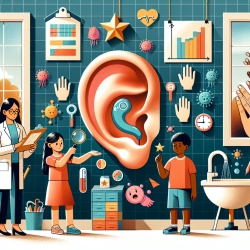Introduction
As practitioners, we are constantly seeking ways to improve our skills and the outcomes of the programs we implement. The research article "Fidelity of Implementation of an Evidence-Based HIV Prevention Program among Bahamian Sixth Grade Students" offers valuable insights into how fidelity of implementation can significantly impact program success. In this blog, we will explore key findings from this study and discuss how they can be applied to enhance your practice, particularly in educational settings.
Understanding Fidelity of Implementation
Fidelity of implementation refers to the degree to which a program is delivered as intended by its developers. In the context of the Bahamian study, fidelity was crucial in ensuring that the HIV prevention program "Focus on Youth in the Caribbean" (FOYC) achieved its desired outcomes. The study found that teachers who adhered closely to the program's core elements saw better student outcomes in terms of HIV/AIDS knowledge, reproductive health skills, and protective intentions.
Key Factors Influencing Fidelity
Several factors were identified as influencing the fidelity of implementation:
- Teacher Training: Teachers who attended comprehensive training workshops implemented the program with higher fidelity. This underscores the importance of investing in thorough training sessions to equip educators with the necessary skills and confidence.
- Teacher Perception: Teachers who perceived the program as important for their students were more likely to implement it faithfully. This highlights the need to align the program's goals with the educators' values and beliefs.
- Experience Level: Interestingly, teachers with fewer years of experience were more likely to adhere to the program's core elements. This suggests that newer educators may be more open to following structured guidelines.
Implications for Practitioners
For practitioners looking to improve their implementation skills, consider the following strategies:
- Invest in Training: Ensure that all program facilitators receive comprehensive training. This not only improves fidelity but also boosts educators' confidence in delivering the program.
- Foster Positive Perceptions: Engage educators in discussions about the program's importance and relevance to their students. This can increase their commitment to implementing the program as designed.
- Support New Educators: Provide additional support and resources to less experienced educators to help them navigate the program effectively.
Encouraging Further Research
While the study provides valuable insights, it also opens avenues for further research. Practitioners are encouraged to explore how these findings can be applied in different contexts and with various programs. Understanding the nuances of fidelity across different settings can lead to more effective implementation strategies and better outcomes for students.
To read the original research paper, please follow this link: Fidelity of Implementation of an Evidence-Based HIV Prevention Program among Bahamian Sixth Grade Students.










